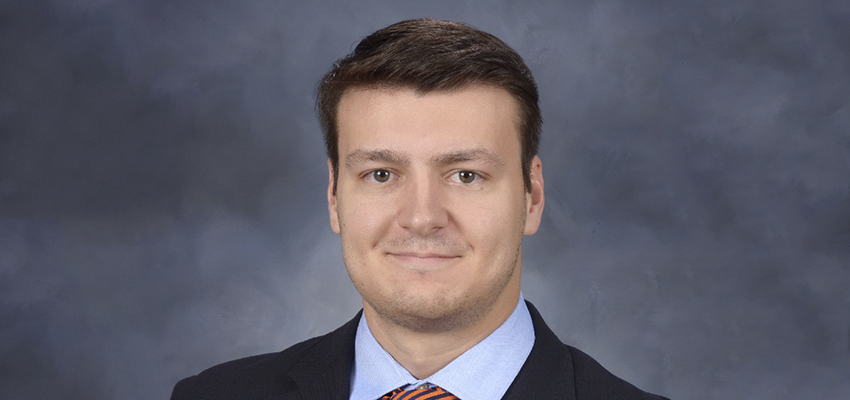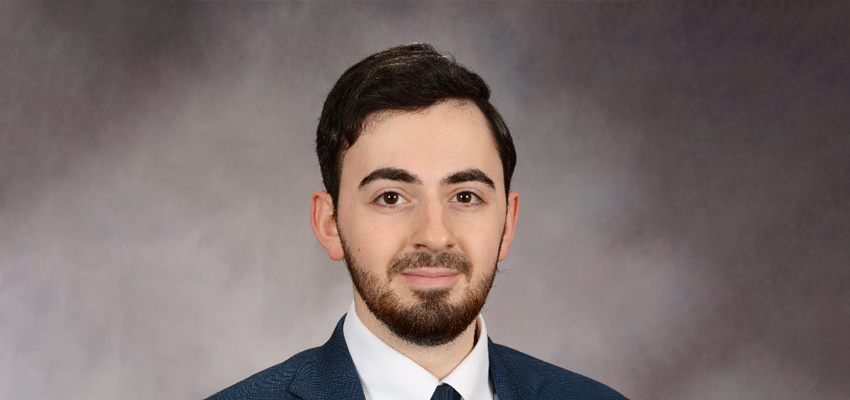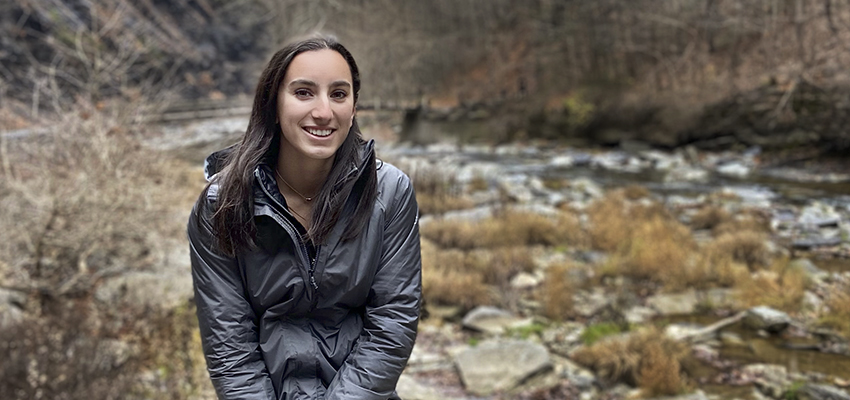
HWS News
8 June 2021 • Alums • STEM Beckley '20 Earns Graduate Award from Wisconsin
A graduate student in atmospheric and oceanic sciences at the University of Wisconsin-Madison, Ian Beckley ’20 was recognized with the Schwerdtfeger Award for academic achievement.
Ian Beckley ’20 is the 2021 recipient of the Schwerdtfeger Award, given to a graduate student in the University of Wisconsin-Madison’s Department of Atmospheric and Oceanic Sciences who has performed academically at the highest level during the intensive first year of core coursework.
A geoscience major and mathematics minor at HWS, Beckley notes the “strong curricula, research opportunities, and a strong emphasis on communication” that helped prepare him for graduate studies. From his award-winning lake effect snow research to his English coursework, he developed foundational scientific skills and learned how to synthesize research.
“A scientist’s work is really only useful if they manage to communicate it,” Beckley says. With the strength of HWS humanities and social sciences, “STEM-focused students would do well to diversify their skill set by taking several courses entirely outside their domain.”
As a master’s candidate and graduate research assistant at Wisconsin, Beckley plans to concentrate his studies on synoptic dynamics, like his mentor at HWS, Associate Professor of Geoscience Nick Metz, and Metz’s mentor before him.
“A synoptic dynamicist is a fancy word for someone who concerns themselves with the physics and mathematics of motion in a fluid body at large scales, so weather patterns which might impact entire regions at once,” Beckley explains.
“The atmospheric and oceanic sciences contain a variety of disciplines and cover many spatial scales. These spatial scales can be thought of as Russian nesting dolls,” he says. “An individual thunderstorm might be the smallest doll, while the largest doll might be the climate of the entire globe itself.” At Wisconsin, the graduate program “works to build one’s domain knowledge by addressing each of these ‘Russian dolls’ and the workings in-between.”
Beckley says he is being stretched as a scientist, breaking new ground — he suspects — in the field’s understanding of how cyclones are formed. He is also learning new coding and programming skills.
For any HWS student who intends to continue into graduate school and research, Beckley has one piece of advice: “get a math minor. Physical science is applied math…You don’t need to master these skills in undergrad, but the exposure will be invaluable for your critical thinking and problem-solving ability.”



